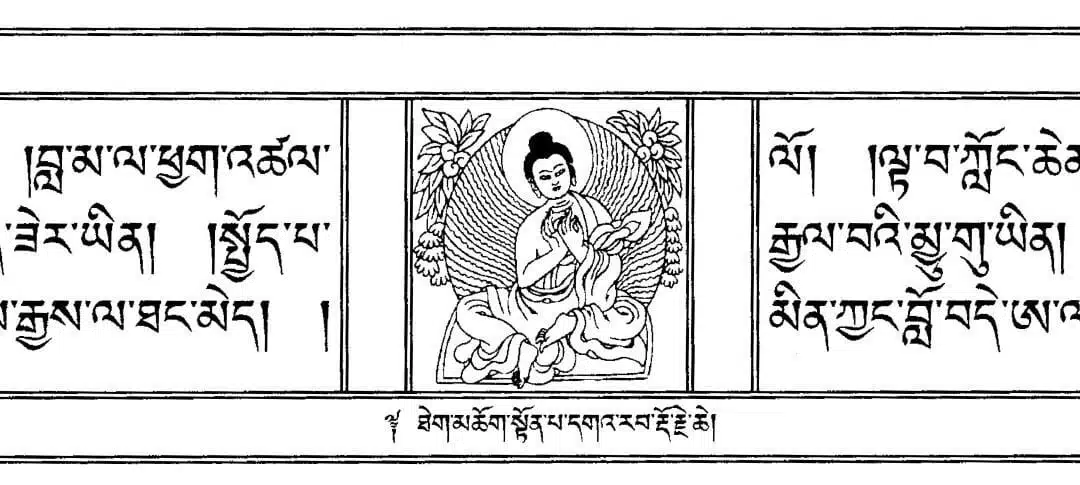Rare and Precious 1
Human life, a crossroads for understanding cosmos
Rare and precious?
It is not mustard, nor even water. For water, indeed, is the support of life; but human life is even rarer.
Yes, it’s human life I want to talk about.
At a time when it is so fragile, when its ecosystem is threatened by its own activity, it is necessary to recall what the fundamental traditions underline: It is rare and precious.
It is rare and precious.
In the Indo-Tibetan tradition, there are 6 kingdoms of existence.

Let us begin with its preciousness:
In the Indo-Tibetan tradition, there are 6 kingdoms of existence. Six types, therefore, of possible rebirths. Once dead, one transmigrates, and one is not necessarily reborn as a human: one can be reborn as
being of the hell realms,
hungry ghost,
animal,
human,
titan,
god.
Each type of rebirth is characterized by a fundamental recurring tendency, a primary emotion that determines the type of body support and environment in which you will be reborn.
The beings of the hell realms, then, are driven by anger-aversion: it has dominated them to the point where it has constituted their existence, determined their bodily support, built the walls of their reality. A reality devoid of all hope, without space for joy and rejoicing, in an extreme tightness that crushes all potentiality of happiness and freedom.
Hungry ghosts are driven by a fundamental greed that translates into a constant and always unsatisfied hunger and thirst. They are described in a graphic way as beings with a huge belly but a very long and thin neck: their swallowing is difficult, and in their environment resources are non-existent or almost. I’ll skip the details on the “hungry ghosts that cross space”, they are afflicted with so many anxieties and delusions that they drive you crazy and sick when they want to get in touch with you.
Animals are afflicted with a mental torpor that borders on stupidity: certainly they can dream (look at your cat sleeping) and are obviously endowed with a type of intelligence that allows them to understand their environment in a subtle and non-discursive way. But they are unable to read a blog post about Dzogchen practice, and that is a real handicap. They lack the ability to be aware of their state and never question their animal state.
Titans are driven by jealousy, or envy. In short, they are in perpetual war against the gods, because they would like to take their place and become gods, they who are almost…but who are not. Wanting to be caliph in the place of the caliph, they always fail miserably to achieve it, not disturbing one iota the gods of their delight.
The gods, in fact, live their life well, which lasts for millions of years. Their driving passion is pride. They have luminous bodies, and each of their desires manifests itself simply by thinking about it. But they also die, and there, not cool: they who thought they were immortal see their luminosity disappear and the other gods move away from them; even worse, thanks to their extraordinary perception, they see in what they will be reborn, and thus: pain, misfortune and terror.
All this panorama to tell you about us precious humans (I suspect that you are not a greedy spirit who reads this blog Dzogchèn, but if so, you are welcome!)
Precious, why? We humans, our first passion, is desire: we are born in the sphere of desire and driven by it. Desire, […] which pleasure fuels, writes Baudelaire. But we feel all the others as well: we know how to be jealous, how to be angry, how to be stupid or greedy or proud. We are at an ontological crossroads because we can know and feel the causes of rebirth of all other states of existence. Not bad, eh?

By the way, if we read and understand these lines, congratulations! According to the tradition, we have a human existence called “free and well endowed”: we were born on this really nice planet (at least not so bad) where there are authentic spiritual teachings that have been transmitted from generation to generation by awakened beings up to us (yes! ); our senses and faculties are pretty much intact, because even if our eyes hurt from reading on a screen, we understand these words and can dissect them and retort to them with a sharp sense of repartee; our attitude is not completely extreme, however, and we may even end up liking this text (which would mean that at least a part of us agrees with at least a part of its content)
In this particular metaphysical position, we are therefore in a good position to practice the Great Perfection!

Written by Paul Baffier
More From All Categories

Nenikekamen!
With “Nenikekamen!” Grégoire compares the marathon, the flagship event of the Olympic Games, to the Dzogchen path.

Hammer Throw
In “Hammer throw”, Paul tells us that the first hammer throw in history reflects the practice of Dzogchen.

The special teaching of the wise and radiant ruler
“The special teaching of the wise and radiant ruler” by Patrul Rinpoche is a new translation from the Dzogchen Today translation committee.
